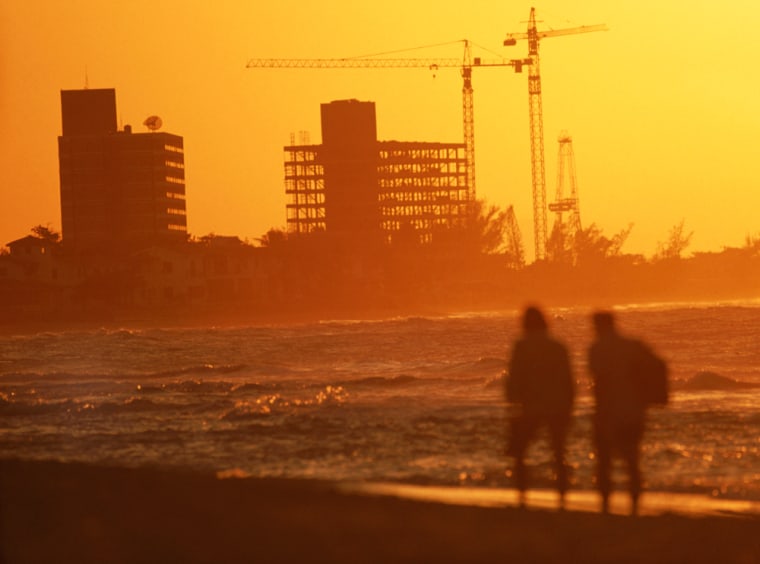Cuba is not ready for the throngs of American tourists who would be expected to visit the island if a U.S. ban is ever lifted, but it has the time to build new hotels, a senior Cuban official said on Wednesday.
“We have time to build the hotel capacity for the day that happens,” Cuba’s deputy minister of Tourism Oscar Gonzalez said in an interview.
“It will take the United States some time to dismantle that infernal apparatus that has barred its citizens from traveling to Cuba,” he said, referring to proposals in the U.S. Congress to relax sanctions against Cuba.
Some U.S. lawmakers are seeking to ease restrictions on travel and trade with Cuba, but even if Congress approves, their efforts are likely to face a veto by President George W. Bush who has tightened sanctions in an effort to undermine Fidel Castro’s government.
Cuba estimates 1 million Americans would visit in the first year after Washington ends a travel ban put in place more than four decades ago to isolate Castro’s communist government.
Americans are expected to flood to Cuba to enjoy its pristine beaches, sip daiquiris at Ernest Hemingway’s favorite bars and take a step back in time riding in vintage cars in a city that was once a Mafia playground.
By some estimates, there could be 3 million American tourists visiting Cuba within five years of an opening up of U.S. travel.
Cuba would have to more than double its current capacity of 42,000 hotel rooms, Gonzalez said. The island has the potential for more than 250.000 rooms, he said.
Drop in visitors
U.S. tourists would provide a needed shot in the arm for Cuba’s tourism industry, which saw a 3.6 percent decline to 2.1 million arrivals last year.
It was the first drop since 2002 when the worldwide travel industry reeled from the fear of flying caused by the September 11, attacks by hijacked planes in the United States.
European tour operators say uncertainty over Cuba’s future since Castro underwent emergency stomach surgery and handed over power to his brother in July has not affected their bookings.
But they said the 2005 revaluation of the local currency made Cuba an expensive vacation choice and business was lost to cheaper resorts in Cancun and the Dominican Republic.
Operators cited complaints about bad service and poor quality of the food at Cuban hotels as a factor in the decline of visitors from France, Germany, Italy and Spain last year.
Britain became Cuba’s largest source of tourists after Canada in 2005 when Virgin Atlantic started flying to Havana twice a week.
Some 602,000 Canadians and 211,000 Britons flew to Cuba to enjoy its beach resorts last year, Gonzalez said.
The high cost of fuel has slowed European vacation travel and Cuba is reviewing its prices in the face of competition.
“We are revising the quality/price ratio. The main effort we have to make is to improve the quality of Cuba’s tourism services,” he said.
Gonzalez said Cuba was open to new partnerships with foreign hotel chains such as Sol Melia that provide customers, prestige and management.
Cuba’s goal is to expand its tourism trade by 8 percent this year to 2.4 million arrivals, he said.
